All Stories
-
 Artificial Intelligence
Artificial IntelligenceArtificial intelligence is learning not to be so literal
Artificial intelligence is learning how to take things not so literally.
-
 Astronomy
AstronomyA space rock collision may explain how this exoplanet was born
Simulations suggest a planet roughly 2,000 light-years away formed when two space rocks collided, supporting the idea that such events are universal.
By Jeremy Rehm -
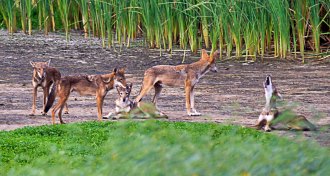 Genetics
GeneticsDNA from extinct red wolves lives on in some mysterious Texas coyotes
Mystery canids on Texas’ Galveston Island carry red wolf DNA, thought to be extinct in the wild for 40 years.
-
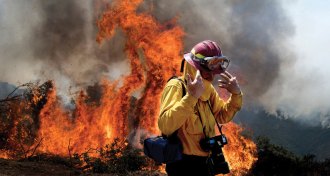 Climate
Climate‘The Human Element’ makes the impacts of climate change feel real
Photographer James Balog puts a human face on the impacts of climate change in the documentary The Human Element.
-
 Humans
HumansWhy it’s key to identify preschoolers with anxiety and depression
With mounting evidence that very young children can experience anxiety and depression, efforts are underway to identify and treat them early.
By Sujata Gupta -
 Science & Society
Science & SocietyNSF science research funds are flowing again after the shutdown
Assessing the scope of the shutdown’s impact on NSF-funded science will be a long process.
-
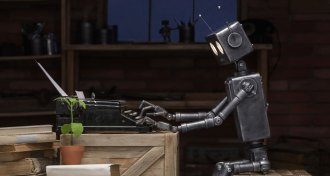 Humans
HumansHere’s what makes satire so funny, according to science
Analysis of headlines from the satirical newspaper The Onion could help you — or a computer — write humorous news headlines.
-
 Physics
PhysicsLasers could send messages right to a listener’s ear
Communication in noisy environments or dangerous situations could one day rely on lasers.
-
 Planetary Science
Planetary ScienceTitan’s oddly thick atmosphere may come from cooked organic compounds
Saturn’s moon Titan might get some of its hazy atmosphere by baking organic molecules in a warm core.
-
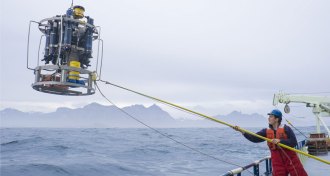 Climate
ClimateClimate change might not slow ocean circulation as much as thought
New measurements may call for a rethink of what controls ocean circulation in the North Atlantic.
-
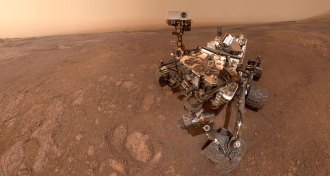 Planetary Science
Planetary ScienceNASA’s Curiosity Mars rover weighed the mountain it’s climbing
Curiosity measures gravity as it drives, allowing scientists to weigh Mount Sharp and determine that the rock is less dense than expected.
-
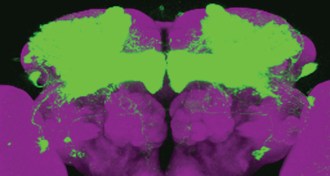 Genetics
GeneticsThis bacteria-fighting protein also induces sleep
A bacteria-fighting protein also lulls fruit flies to sleep, suggesting links between sleep and the immune system.